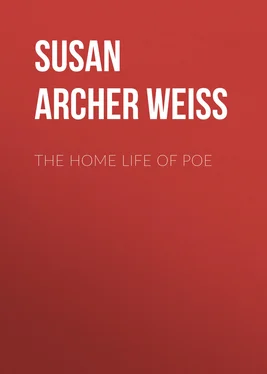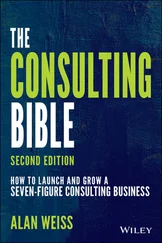For some time he received no answer; but at length there came a letter which must have caused his heart a pang of real sorrow. It was from Mr. Allan, informing him of the death of his wife, and directing him to apply for a furlough and come on at once to Richmond, where he arrived two days after her burial.
Woodbury is mistaken in saying that in all this time Mr. Allan had not known of Edgar's whereabouts. According to Miss Valentine, Poe never at any time ceased entirely to correspond with Mrs. Allan, who never, to her dying day, lost her interest in the boy whom she had loved as a son, and neither ceased her endeavors to reconcile himself and her husband, urging Edgar to return and Mr. Allan to receive him. In anticipation of such result, she kept his room as he had left it, ready for his occupation at any time that it might suit his wayward fancy to return.
Mr. Allan talked to Poe seriously, and, finding that his great desire was to get a discharge from the army, promised to assist him; but only upon condition of his entering West Point, by which there would be secured to him an honorable and independent position for life, and Allan himself be relieved from all responsibility concerning him. But that he had not entirely forgiven Edgar was evident from a letter to the latter's commanding officer, wherein he exposes, unnecessarily, perhaps, the youth's gambling habits at the University, declaring that "he is no relation of mine whatever, and no more to me than many others who, being in need, I have regarded as being my care." Poe must have felt this latter as a humiliation; and it was certainly not calculated to increase his regard for the writer.
Poe's career at West Point is well known. At first all went well. One of his Virginia comrades, Col. Allan Magruder, describes him as of a simple and kindly nature, but, by reason of his distance and reserve, not popular with the cadets, and that he at length confined his association exclusively to Virginians. But the old discontent and impatience of restraint returned upon him, and after some months he wrote to Mr. Allan that he wished to leave West Point—a step to which the latter positively refused his assistance.
Finding nobody inclined to help him, he resolved to force his discharge. He purposely neglected his studies and military duties, deliberately violated the rules, engaged—it was said by some—in all sorts of disgraceful pranks; and finally was tried by court-martial and, on March 7, 1831, dismissed from the institute.
It has been naturally inferred that Poe's object in this voluntary self-sacrifice was simply to free himself from the irksomeness of military duties which, on trial, he found so opposed to his taste and inclination. But perhaps the real motive was one which has never yet been suspected.
Конец ознакомительного фрагмента.
Текст предоставлен ООО «ЛитРес».
Прочитайте эту книгу целиком, купив полную легальную версию на ЛитРес.
Безопасно оплатить книгу можно банковской картой Visa, MasterCard, Maestro, со счета мобильного телефона, с платежного терминала, в салоне МТС или Связной, через PayPal, WebMoney, Яндекс.Деньги, QIWI Кошелек, бонусными картами или другим удобным Вам способом.
In this historical church it was that Patrick Henry thrilled the hearts of his hearers with the memorable words, "Give me liberty or give me death!" and sent them forever "ringing down the grooves of time."
The official date of Rosalie Poe's death, on June 14, 1874, represents her as 64 years of age. This would make her a year and a half old when adopted by the Mackenzies, in December, 1811.
Lest my mention of these little anecdotes and certain other matters should lead the reader to conclude that I am quoting from Gill, I would refer them to Appendix No. 1 of this volume.
This account, clipped from a Baltimore paper, was given by Professor Clarke's son to a Richmond reporter in 1894.












